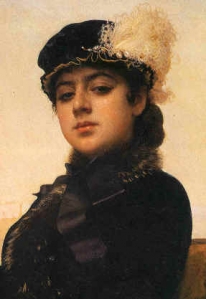 The memoirist Julie Metz, who is now working on a novel, writes:
The memoirist Julie Metz, who is now working on a novel, writes:
When I wrote my memoir, Perfection, the story of my discovery of my husband’s secret life only after his sudden death, my focus was on careful recall aided by journals and letters. And yet, since I love reading fiction, I wanted my memoir to “read” like a novel. After many failed attempts, I found a structure for the factual narrative that allowed me to recapture my own state of mind at the moment of my husband’s death and the early months of widowhood. The primary inspiration for my book was the fictional memoir Jane Eyre, in which an innocent narrator’s life is changed by a devastating revelation.
During this last year, while Perfection was in the final stages of publication, I began working on a new project, a novel. I am finding it to be a very different process. I began with a snippet of a story I’d been kicking around in my head for years, but as I got into the project in a deep way, the original story fell away as the characters became more vivid. Very little remains of the original idea except for locations and some back story. The day I realized I had to quit forcing my original idea into the book was both sad and liberating. My attempts to direct the plot were those of a classroom bully who tries to force other kids to play by his or her rules. No one wants to play with a bully.
Now that I spend my days conjuring rather than exclusively researching my past, I frequently think of Anne Lamott’s advice in Bird by Bird: to focus not on plot but on character. I try to sit with my (mostly) made up characters and hope that if I am quiet and patient I will get to know them as well as the real people in my life, and that they will tell me what they need to do and say.
Julie Metz is a graphic designer (she co-designed the cover of her memoir), artist, and freelance writer whose work has appeared in publications including The New York Times, Glamour, and Publisher’s Weekly. Perfection: A Memoir of Betrayal and Renewal, is her first book.
 As I read this novel recently I noticed that Tolstoy cuts his long scenes into short chapters, usually no more than two or three pages. He often ends a chapter in a moment of suspense – a door opens, a provocative question is asked, a contentious group sits down to dinner, characters who’ve been circling each other finally begin to talk – which propels the reader forward into the next chapter.
As I read this novel recently I noticed that Tolstoy cuts his long scenes into short chapters, usually no more than two or three pages. He often ends a chapter in a moment of suspense – a door opens, a provocative question is asked, a contentious group sits down to dinner, characters who’ve been circling each other finally begin to talk – which propels the reader forward into the next chapter. A novelist friend has an index card with these four words on it taped to the wall above the computer in his study:
A novelist friend has an index card with these four words on it taped to the wall above the computer in his study:
 See
See 